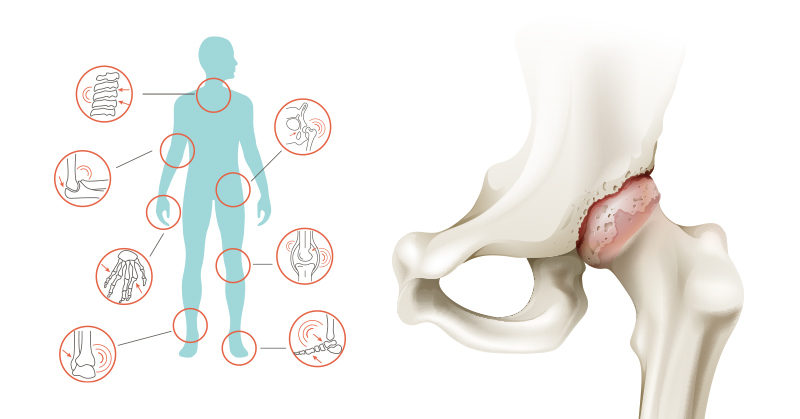23 percent of adults in the United States have arthritis. That is approximately 54 million people. Approximately fifteen million of those people report having severe joint pain due to arthritis [1]. Joint pain can be debilitating and prevent you from doing the activities that you enjoy. Luckily, there are remedies for joint pain you can use at home to help you get your life back. The most common form of arthritis is osteoarthritis. Other forms include gout, rheumatoid arthritis, and lupus [1]. The focus of the article will be on osteoarthritis.
Read: 54 Natural Remedies For 12 Common Ailments
Remedies for Joint Pain and Arthritis

If you are experiencing chronic joint pain, the first thing you should do is talk to your doctor. They will be able to determine the cause of your pain and create a plan to reduce or eliminate your symptoms. Unfortunately, there is no cure for arthritis. There are, however, treatments that can slow it down and relieve symptoms. The following remedies for joint pain can help to reduce your discomfort.
1. Exercise

Exercise and movement can help you manage your weight, keep your joints flexible, and strengthen the muscles around your joints to provide them with more support. If you are struggling with joint pain, however, some forms of exercise are better than others.
Exercises to avoid if you have arthritis:

- Running
- Jumping
- Tennis
- High-impact aerobics
- Repeating the same movement, such as a tennis serve, again and again [2]
The best exercises for people with joint pain are those that are low-impact. Examples include:

- Walking
- Cycling
- Yoga
- Swimming
- Water aerobics
- Tai Chi [3]
Related: Could Exercise Prevent Arthritis? New Research Is Hopeful
2. Manage Your Weight

Being overweight or obese can put excess pressure on your joints, which can cause or worsen joint pain. The American College of Rheumatology and Arthritis Foundation strongly recommends that people who are overweight or obese lose weight in order to reduce their symptoms. Losing weight can also improve your mobility and prevent future damage to your joints [4].
3. Eat a Healthy Diet

A diet high in red meat, processed foods, saturated fat, and added sugar and salt can increase the amount of inflammation in your body. Inflammation is a characteristic of arthritis and thus can make symptoms worse [5]. On the other hand, diets that are rich in fresh fruits and vegetables, healthy fats, and whole foods can help decrease inflammation. A healthy diet can also help you control your body weight, which may also reduce your joint pain [5]. Adopting an anti-inflammatory diet may be useful to help with symptoms of arthritis.
Read: 10 home remedies to help with bronchitis and painful coughing attacks
4. Stay Hydrated

We know that the benefits of drinking water are numerous. Reducing joint pain is yet another reason to stay hydrated. Drinking water helps to reduce the friction in your cartilage. This is the tissue that helps your joints move smoothly. Your joints also contain synovial fluid, which provides a cushion to prevent your bones from coming into contact with one another. Drinking enough water and fluids throughout your day will ensure that you are sufficiently lubricating your joints. This will keep your cartilage healthy, and help to decrease inflammation that might appear in your joints [6].
Related: How to Make Sure You’re Drinking the Right Amount of Water Everyday
5. Curcumin
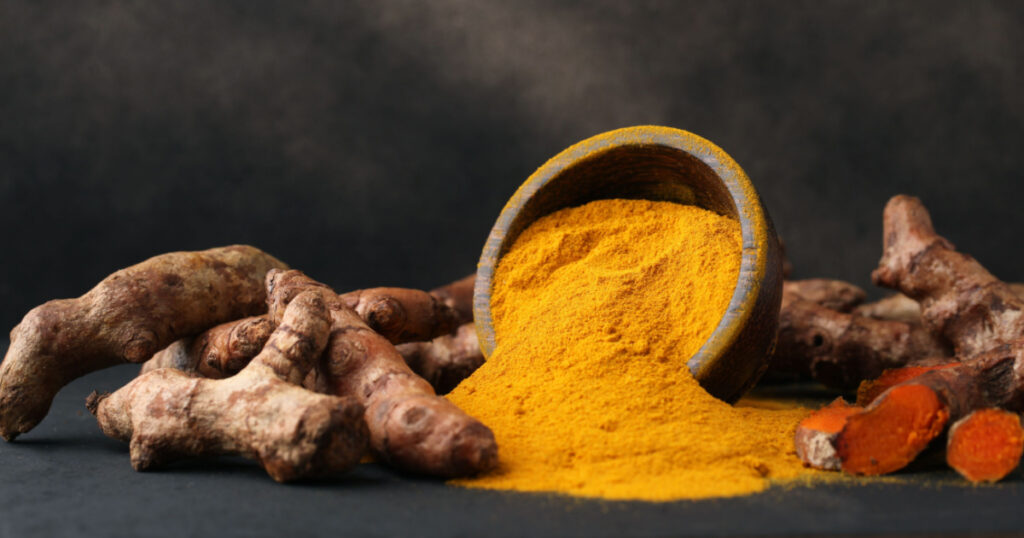
Turmeric is a bright yellow spice that is common in many Indian dishes. It contains an important compound called curcumin which has potent antioxidant and anti-inflammatory properties. While scientists are still researching the effects of turmeric, studies have shown that it may help reduce arthritis pain and inflammation [7]. It has been shown to inhibit the cyclooxygenase (COX) enzymes to reduce inflammation, this action is comparable to that of NSAIDs [13]. Typically turmeric is more effective at reducing pain related to arthritis when supplemented with higher concentrations of absorbable curcumin. Curcumin typically has poor bioavailability (poorly absorbed) and therefore may have minimal effect on the target tissue (i.e. joints). Talk to your doctor before using a turmeric supplement, as it may interfere with prescribed medications. Turmeric can also be incorporated into your diet as well. It’s available in whole-root and powdered varieties. Check your local health food store.
6. Try Using Herbal Supplements
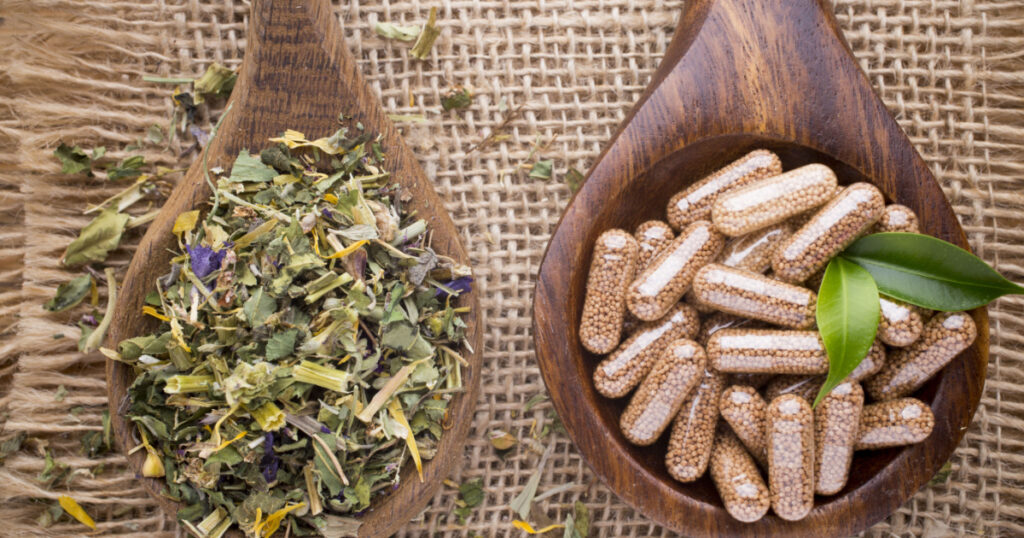
There are many herbal supplements that can be used as a remedy to help reduce joint pain. Some examples of these include Boswellia, bromelain, devil’s claw, ginkgo, stinging nettle, and thunder god vine [8] It is important to remember, however, that the research on herbal supplements is still new. Thus, there is a lack of clinical evidence to prove their efficacy. Additionally, the FDA does not monitor herbal supplements for safety or quality, so you should be careful that you’re buying from a reputable source. As always, talk to your doctor before beginning a new supplementation regime.
Read: Your Bones Are Getting Weaker Year After Year, but There Are Ways to Keep Them Healthy
7. Hot and Cold Therapy
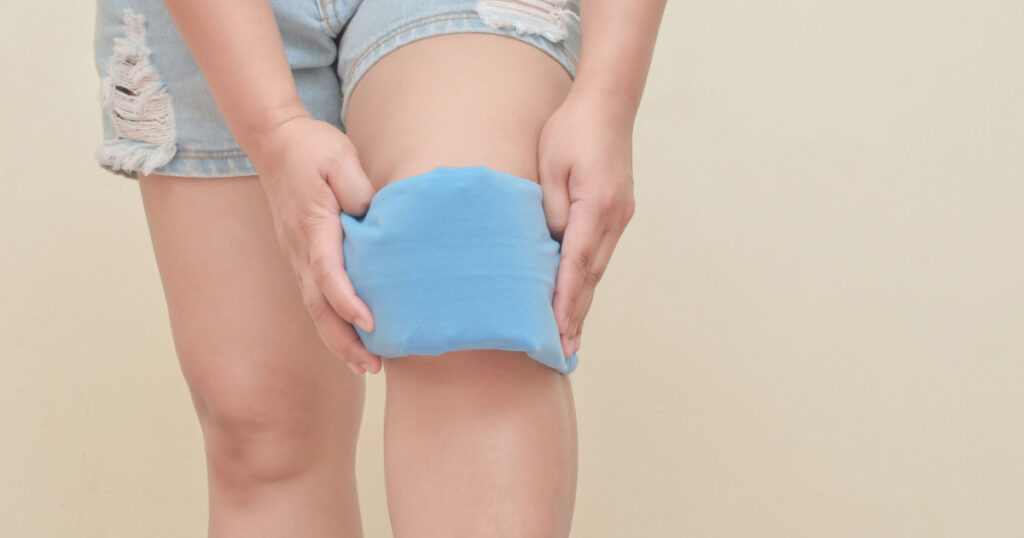
For many people, heat tends to work better for relieving pain, however cold can help too. Cold works by reducing swelling and numbing the area, while heat loosens up muscles and increases flexibility and circulation. Soaking in a warm bath or hot tub for twenty minutes, or taking a warm shower can help relieve joint pain. A heating pad or a warm, damp cloth can also be useful. For cold therapy, the easiest thing to do is apply an ice pack to the painful area for twenty minutes at a time [9].
8. Acupuncture and Massage
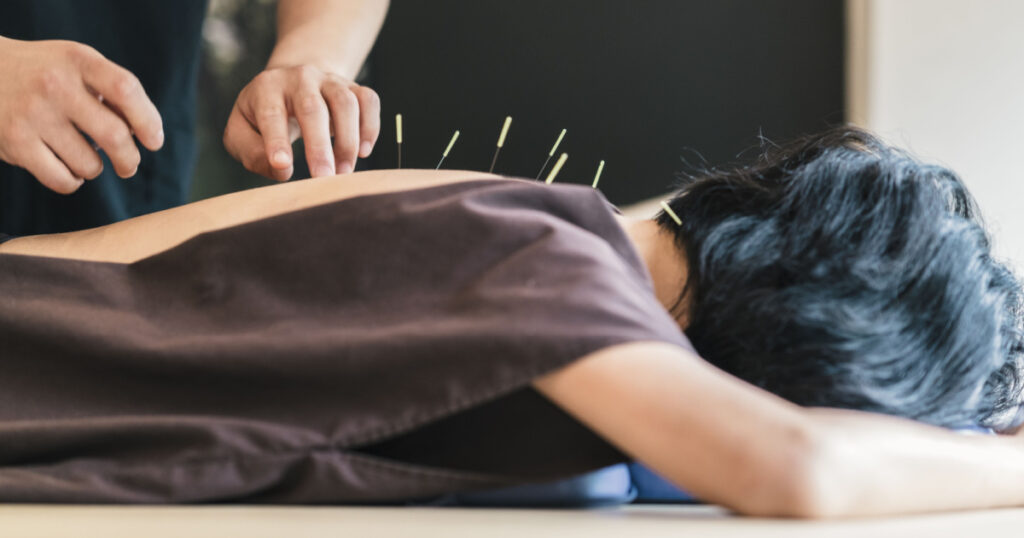
Many studies have shown that acupuncture can act as a remedy to relieve joint pain. Because the risks of the treatment are relatively low, it may be worth trying for symptom relief. A massage may also help you to relax and relieve some of the pain you are experiencing [10].
9. Meditate

The National Institutes of Health (NIH) has found that for some, practicing mindfulness meditation can help relieve symptoms of arthritis. There is still a lack of research regarding mind and body approaches to arthritis relief, however considering the low risk, it may be worth trying [11].
Read: 10 Natural Remedies To Help Deal With a Sinus Infection
10. Try Cannabidiol (CBD)

Cannabidiol (CBD) is the non-psychoactive compound in the cannabis plant. There is still a lack of conclusive evidence to definitively say that CBD can decrease joint pain, however, there are many anecdotal reports supporting its efficacy [12]. It can be used topically or internally as a possible remedy for joint pain.
Talk to Your Doctor

Before you try any home remedies for joint pain, you should talk to your doctor. They will be able to make the best recommendations for you based on your health history and your specific needs.
Keep Reading: The Cause Of Autoimmune Diseases Like Rheumatoid Arthritis Could Be In Your Fridge
Disclaimer: This information is not intended to be a substitute for professional medical advice, diagnosis or treatment and is for information only. Always seek the advice of your physician or another qualified health provider with any questions about your medical condition and/or current medication. Do not disregard professional medical advice or delay seeking advice or treatment because of something you have read here.
- https://www.cdc.gov/chronicdisease/resources/publications/factsheets/arthritis.htm
- https://www.mayoclinic.org/diseases-conditions/arthritis/in-depth/arthritis/art-20046440
- https://www.mayoclinic.org/diseases-conditions/arthritis/in-depth/arthritis/art-20047971
- https://onlinelibrary.wiley.com/doi/full/10.1002/art.41142
- https://www.rhcnj.com/blog/the-5-best-and-worst-foods-for-those-managing-arthritis-pain
- https://orthopedicassociates.org/dehydration-and-joint-pain/
- https://www.mdpi.com/2304-8158/6/10/92/htm
- https://www.arthritis.org/health-wellness/treatment/complementary-therapies/supplements-and-vitamins/supplement-and-herb-guide-for-arthritis-symptoms
- https://health.clevelandclinic.org/whats-better-for-soothing-arthritis-pain-ice-or-heat/
- https://pubmed.ncbi.nlm.nih.gov/31027096/
- https://www.nccih.nih.gov/health/rheumatoid-arthritis-in-depth
- https://pubmed.ncbi.nlm.nih.gov/28967368/
